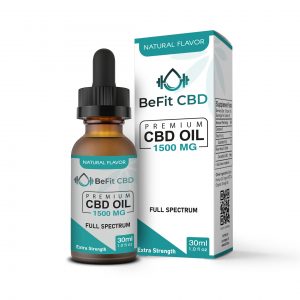The side effects of CBD oil may not exhibit itself during the first usage, but as time goes on, they start showing. This is mainly because no two human bodies are the same, and our bodies react individually to a stimulant.
Nausea
Animal studies and customer testimonials show that people who use CBD oil drops experience stomach discomfort and nausea. Despite CBD being a cure for nausea, it can also cause sensitive stomachs when not used properly. Consuming CBD oil with an empty stomach is the primary cause of nausea, so its recommended to take CBD 60 minutes after a meal.
Dryness of the Mouth
CBD oil drops can also lead to dry mouths in some people. Studies supporting this theory is limited, but one study conducted in 2006 from a male rat observation showed that cannabinoids interact with our endocannabinoid receptors, inhibiting the CB1 and CB2 that regulate the generation of saliva. Thus, resulting in low amounts of saliva produced and an increase in dry mouth.
Dizziness
Individuals who consume high doses of CBD with CBD vape pens often will report feelings of dizziness. Since vapes pens have a high absorption rate, it can hit you hard if you inhale a lot. Nonetheless, this may be a placebo effect. Actual dizziness results from a fall in blood pressure.
Drowsiness
Different studies and customer reports show that there’s a possibility of becoming drowsy after consuming from CBD oil. Drowsiness can be a beneficial aspect of CBD oil drops based on an individual perspective. Higher dosages of CBD usually lead to drowsiness, and this is the main reason why CBD people with sleep-related issues use it.
Change in Mood or Appetite
CBD can also profoundly affect mood and appetite in some patients. This is an indirect symptom that results from anxiety treatment, and it usually results in reduced appetite and mood swings. Nonetheless, CBD may also increase appetite, especially when combined with other compounds such as THC.
Diarrhea
Individuals with weaker stomachs may also experience diarrhea after using CBD oil. This is a rare case, especially for someone who ingested CBD oil while on a full stomach.
Lack of Effectiveness
More effectiveness means fewer side effects, but there are some patients who don’t feel the effects of CBD at all. This may be as a result of inconsistently using CBD oil or using minimal dosages of CBD oil.
Headaches and Migraines
There’s a chance that CBD oil can lead to headaches. This is because CBD is recommended for patients with migraines and headaches. But some individuals who experience slight headaches after using hemp CBD oil may blame it on the brand of oil, the source of the and overall bad ingredients.
Liver Problems
Recent reports identify liver problems with CBD oil usage. According to the FDA, liver issues were discovered through multiple studies. The leading cause of liver issues are because of inhibition or blockage of liver-helping medication, which results in poor functioning of the liver. Therefore, individuals with any liver issues should avoid using CBD oil.
Affect Medications That Have Grapefruit Warnings
New information shows that CBD can affect the same medications that have restrictions on grapefruit due to its interaction with the same enzymes of the body as grapefruit. Reports from Forbes show that both grapefruit and CBD comprise of compounds that bind and neutralize enzymes in the gut (CYP450 enzymes), thus helping to remove the compound from the body altogether.
Since the enzymes have limits, the compound quickly enters the liver and flow at higher levels while remaining in the body. This can cause small doses to be extremely high. CBD can even harm the body if it binds with enzymes in the liver and gut.
Lower Blood Pressure
In addition to reacting to grapefruit medications, CBD may also act as a blood thinner, meaning it possibly lowers blood pressure. This can be a risk to individuals who depend on blood-thinning medications. Also, individuals undergoing surgery should avoid using CBD oil or products for a week to prevent any potential effects.
Increased Effectiveness
CBD can become more effective when it’s used for long. Therefore, over a long period, individuals may not need to take the same MG of CBD to gain maximum effects. This also means that after using CBD oil for a few months, users should lower their doses to see if the results are the same.
Worsened Symptoms from Parkinson’s Disease
Preliminary reports from scientific studies show that high doses of CBD oil may make the symptoms of Parkinson’s Disease to worsen. It’s recommended consulting your physician before trying CBD oil for Parkinson’s Disease. Recent studies suggest that CBD oil can be beneficial for Parkinson’s patients mainly when used at lower dosages.
Vomiting
Vomiting is a rare side effect of CBD oil. A study from 2011 on rats discovered that cannabinoids reduce vomiting because of how it affects the CB1 receptors. Keep in mind that CBD reduces nausea by interacting with CB 1 receptors as well. However, in rare cases where vomiting occurs, patients should evaluate their entire diet. Vomiting can result from a lot of factors, including nausea. So, using CBD to reduce nausea may have caused the vomiting to begin with.
Bottom line
The potential side effects of CBD may not be as severe as the effects which result from most medical treatments or drugs, like opiates. This is why CBD can be a powerful treatment to some medical conditions. CBD can help different cases, including extreme conditions such as cancer, tumors, and seizure. Present studies show that CBD can help with different types of symptoms or issues. Also, the current benefits of CBD oil outweigh the possible side effects of CBD oil entirely.
Sources
Iffland, K., & Grotenhermen, F. (2017). An Update on Safety and Side Effects of Cannabidiol: A Review of Clinical Data and Relevant Animal Studies. Cannabis and cannabinoid research, 2(1), 139–154. https://doi.org/10.1089/can.2016.0034
Iffland, K., & Grotenhermen, F. (2017). An Update on Safety and Side Effects of Cannabidiol: A Review of Clinical Data and Relevant Animal Studies. Cannabis and cannabinoid research, 2(1), 139–154. https:/doi.org/10.1089/can.2016.0034
Parker, L. A., Rock, E. M., & Limebeer, C. L. (2011). Regulation of nausea and vomiting by cannabinoids. British journal of pharmacology, 163(7), 1411–1422. https:/doi.org/10.1111/j.1476-5381.2010.01176.x

 FREE SHIPPING ON ALL PRODUCTS
FREE SHIPPING ON ALL PRODUCTS





